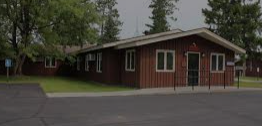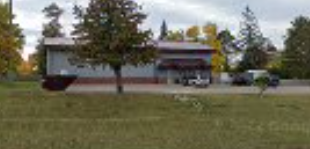Oshki Manidoo Center

Contact Details
-
Name:Oshki Manidoo Center
-
Address:1741 15th Street NW
Bemidji, MN - 56601 -
Phone:218-751-6553 x6261
-
Email:
-
Website:
Description
There are currently state and federally funded or sponsored drug and alcohol treatment centers in the state of Minnesota
Questions & Answers
Help others like you find out more about Oshki Manidoo Center. Do you know the answers to any of these questions? Contribute now and help others like you.
What kinds of care do they offer?
-
Substance use treatment
Refers to a broad range of activities or services, including identification of the problem (and engaging the individual in treatment); brief interventions; assessment of substance abuse and related problems including histories of various types of abuse; diagnosis of the problem(s); and treatment planning, including counseling, medical services, psychiatric services, psychological services, social services and follow-up for persons with alcohol or other drug problems (Institute of Medicine, 1990).
What types of opioid treatment do they provide?
-
Does not treat opioid use disorders
What types of treatment approaches do they offer?
-
Cognitive behavioral therapy
Involves recognizing unhelpful patterns of thinking and reacting, and then modifying or replacing these with more realistic or helpful ones. The therapy can be conducted with individuals, families, or groups, and clients are generally expected to be active participants in their own therapy.
-
Substance use disorder counseling
A short-term treatment that has been generalized for a variety of disorders including opiate drug dependence and cocaine abuse. The therapy includes supportive techniques which encourage the patient to discuss personal experiences, and expressive techniques, which enable the patient to work through interpersonal relationship issues and gain greater self-understanding.
-
Trauma-related counseling
Cognitive behavior techniques adapted for clients suffering from post-traumatic stress disorder (PTSD) and other effects of abuse and trauma.
-
12-step facilitation
A 12-step program is a support group made up of people who share the same addiction. The "12 steps" refer to the steps recovering addicts must take to overcome their addiction as part of this program. Attendees at group meetings share their experiences, challenges, successes and failures, and provide peer support for each other.
-
Brief intervention
A short-term intervention, usually one to five sessions, for substance abusers who are not yet dependent.
-
Contingency management/motivational incentives
Often used in the treatment of drug and alcohol abuse, the approach employs a positive-reinforcement treatment method in which patients are given rewards for constructive actions taken toward their recovery.
-
Motivational interviewing
A counseling approach which acknowledges that many people experience ambivalence when deciding to make changes. Its aim is not to focus immediately on the action of changing, but to work to enhance motivation to change.
-
Anger management
Uses strategies to address the anger cycle, conflict resolution, assertiveness skills, and anger-control plans. The goal of anger management is to reduce both emotional feelings and the physiological arousal that anger causes.
-
Matrix Model
Provides a framework for substance abuse users to obtain the ability to cease drug use, stay in treatment, and participate in an educational program on addiction and relapse. Users are provided with direction and support from a trained therapist and are introduced to self-help programs.
-
Relapse prevention
A cognitive behavioral therapy developed for the treatment of problem drinking and adapted later for cocaine addicts. Cognitive behavioral strategies are based on the theory that learning processes play a critical role in the development of maladaptive behavioral patterns. Individuals learn to identify and correct problematic behaviors. Relapse prevention encompasses several cognitive behavioral strategies that facilitate abstinence as well as provide help for people who experience relapse.
-
Smoking not permitted
Smoking is not allowed.
What type of setting is this location?
-
Residential/24-hour residential
-
Outpatient
Describes patients who receive treatment services without an overnight stay at a treatment facility or hospital.
-
Long-term residential
-
Intensive outpatient treatment
-
Regular outpatient treatment
Who is responsible for the operation of this facility?
-
Tribal government
A governing body of a group of Native American Indians or Alaska Natives that qualifies as an Indian tribal government determined by the Internal Revenue Services.
What types of license or certifications or accreditation does this facility posses?
-
State department of health
What types of payment or funding do they accept?
-
Medicaid
A joint federal and state program that helps with medical costs for some people with low incomes and limited resources. Medicaid programs vary from state to state.
-
Medicare
The federal health insurance program for people age 65 and older and people with disabilities.
-
State-financed health insurance plan other than Medicaid
-
IHS/Tribal/Urban (ITU) funds
Direct funds from the Indian Health Service. They consist of tribal funds through "638 contracts" (named after the public law under which they were authorized) and/or urban funds through federal Title 5 grants. These funds are considered part of the India health care system and can be used for programs that provide behavioral health services as well as for programs that provide other health-related services.
What specific groups are treated here?
-
Adolescents
Facility has a program or group specifically tailored for Adolescents.
-
Clients who have experienced trauma
Facility has a program or group specifically tailored for persons who have experienced trauma.
-
Clients who have experienced sexual abuse
Facility has a program or group specifically tailored for persons who have experienced sexual abuse.
-
Clients who have experienced intimate partner violence, domestic violence
Facility has a program or group specifically tailored for persons who have experienced intimate partner violence, domestic violence.
-
Young adults
Facility has a program or group specifically tailored for Transitional age young adults.
What ancillary services are offered at this facility?
-
Case management service
Helps people arrange for appropriate services and supports through a case manager who monitors the needs of clients/patients and their families and coordinates services, such as mental health, social work, health, educational, vocational, recreational, transportation, advocacy, and respite care, as needed.
-
Residential beds for clients' children
A residential treatment program that offers beds for children while their parents are in treatment.
-
Child care for clients' children
A treatment program that offers child care for children while their parents are in treatment.
-
Domestic violence services, including family or partner
Provide safety assistance to victims of domestic violence.
-
Early intervention for HIV
Early detection and treatment of HIV, which can help prevent the onset of AIDS and other opportunistic infections.
-
Mental health services
Assessment, diagnosis, treatment or counseling in a professional relationship to assist an individual or group in alleviating mental or emotional illness, symptoms, conditions or disorders.
-
Social skills development
-
Transportation assistance
What types of recovery support services are offered here?
-
Housing services
Are designed to assist individuals with finding and maintaining appropriate housing arrangements.
-
Self-help groups
Groups in which members share the same issue, condition, or situation and thus are in a position to provide help and support to each other.
What specific pharmacotherapy treatments do they provide?
-
Non-nicotine smoking/tobacco cessation
Are medications that do not contain nicotine but act on the brain to reduce a person's craving for tobacco. Some common medications are Bupropion (Zyban, Wellbutrin), and Nortriptyline (Pamelor). Medications are often prescribed in conjunction with behavioral counseling or support groups to provide the best chance for achieving long-term smoking abstinence. (http://www.mayoclinic.com)
What types of screening and assessment methods are used here?
-
Screening for tobacco use
Determines a client's use of tobacco products, such as cigarettes, cigars, pipe tobacco, or smokeless tobacco. It is generally recommended that providers screen for tobacco use on a regular basis by asking clients, as they are seen, about their current and past use of tobacco products and their exposure to secondhand smoke or tobacco.
-
Comprehensive substance use assessment
-
Outreach to persons in the community
-
Screening for substance use
Test to determine whether a person is experiencing symptoms of substance use and needs treatment.
What kinds of education and counseling services are offered here?
-
Smoking/vaping/tobacco cessation counseling
Includes interventions for persons who use tobacco and want help with stopping, including behavioral support or counseling in groups or individually.
-
Individual counseling
Process through which clients work one-on-one with a trained mental health clinician in a safe, caring, and confidential environment.
-
Group counseling
Form of therapy where people with similar experiences/issues come together with a professional therapist.
-
HIV or AIDS education, counseling, or support
Access to education, counseling, and support groups to ?at risk? individuals and also individuals who have been infected with the virus.
-
Health education services other than HIV/AIDS or hepatitis
Any combination of learning experiences designed to help individuals and communities improve their health, by increasing their knowledge or influencing their attitudes.
-
Substance use disorder education
-
Hepatitis education, counseling, or support
Provides education, counseling, and guidance and support for individuals who are at risk for or potentially infected with the hepatitis virus.
-
Vocational training or educational support (for example, high school coursework, GED preparation, etc.)?
What age groups are accepted here?
-
Children/Adolescents
Facility accepts children/adolescents (12 or younger) for treatment.
-
Young Adults
Facility accepts young adults (13-25) for treatment.
-
Adults
Facility accepts adults (26-64) for treatment.
What genders are accepted here?
-
Female
-
Male
What kinds of transitional services do they provide if any?
-
Aftercare/continuing care
-
Discharge Planning
A process that aims to improve the coordination of services after discharge from the hospital by considering the patient?s needs in the community.
-
Naloxone and overdose education
What types of testing do they offer?
-
Drug or alcohol urine screening
Analyzes your urine for the presence of certain illegal drugs and prescription medications.
-
Drug and alcohol oral fluid testing
What types of alcohol abuse treatment are available at this facility?
-
Does not use medication assisted treatment for alcohol use disorder
What other types of addiction do they treat?
-
Treatment for other addiction disorder
Treatment for behavioral addictions or process addictions and occur when a person is dependent upon a specific behavior (i.e. gambling addiction, compulsive shopping disorder, etc.).
Is vaping allowed at this facility?
-
Vaping not permitted
How do I apply for admission at this location?
Have you been to this facility? What was your experience?
Is there a wait-list for treatment center?
Is any payment required?
Related Posts
Leech Lake
- Cass Lake, MN
- 15.53 miles away

